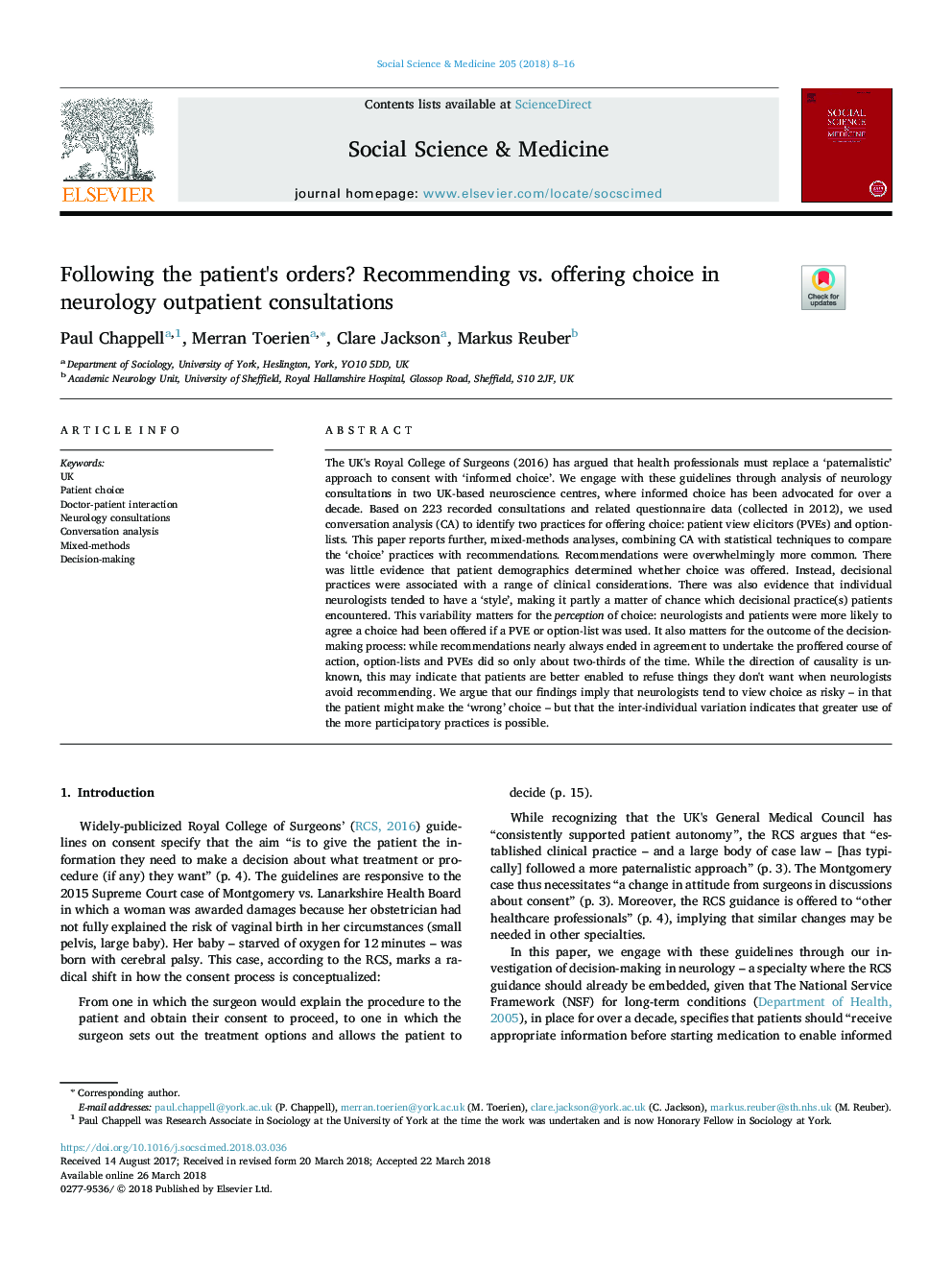| کد مقاله | کد نشریه | سال انتشار | مقاله انگلیسی | نسخه تمام متن |
|---|---|---|---|---|
| 7327939 | 1475964 | 2018 | 9 صفحه PDF | دانلود رایگان |
عنوان انگلیسی مقاله ISI
Following the patient's orders? Recommending vs. offering choice in neurology outpatient consultations
ترجمه فارسی عنوان
به دنبال دستورات بیمار پیشنهاد در مقابل ارائه مشاوره در زمینه پزشکی اعصاب
دانلود مقاله + سفارش ترجمه
دانلود مقاله ISI انگلیسی
رایگان برای ایرانیان
کلمات کلیدی
انگلستان، انتخاب بیمار، تعامل پزشک و بیمار، مشاوره عصب شناسی تجزیه و تحلیل مکالمه، متفرقه تصمیم سازی،
موضوعات مرتبط
علوم پزشکی و سلامت
پزشکی و دندانپزشکی
سیاست های بهداشت و سلامت عمومی
چکیده انگلیسی
The UK's Royal College of Surgeons (2016) has argued that health professionals must replace a 'paternalistic' approach to consent with 'informed choice'. We engage with these guidelines through analysis of neurology consultations in two UK-based neuroscience centres, where informed choice has been advocated for over a decade. Based on 223 recorded consultations and related questionnaire data (collected in 2012), we used conversation analysis (CA) to identify two practices for offering choice: patient view elicitors (PVEs) and option-lists. This paper reports further, mixed-methods analyses, combining CA with statistical techniques to compare the 'choice' practices with recommendations. Recommendations were overwhelmingly more common. There was little evidence that patient demographics determined whether choice was offered. Instead, decisional practices were associated with a range of clinical considerations. There was also evidence that individual neurologists tended to have a 'style', making it partly a matter of chance which decisional practice(s) patients encountered. This variability matters for the perception of choice: neurologists and patients were more likely to agree a choice had been offered if a PVE or option-list was used. It also matters for the outcome of the decision-making process: while recommendations nearly always ended in agreement to undertake the proffered course of action, option-lists and PVEs did so only about two-thirds of the time. While the direction of causality is unknown, this may indicate that patients are better enabled to refuse things they don't want when neurologists avoid recommending. We argue that our findings imply that neurologists tend to view choice as risky - in that the patient might make the 'wrong' choice - but that the inter-individual variation indicates that greater use of the more participatory practices is possible.
ناشر
Database: Elsevier - ScienceDirect (ساینس دایرکت)
Journal: Social Science & Medicine - Volume 205, May 2018, Pages 8-16
Journal: Social Science & Medicine - Volume 205, May 2018, Pages 8-16
نویسندگان
Paul Chappell, Merran Toerien, Clare Jackson, Markus Reuber,
